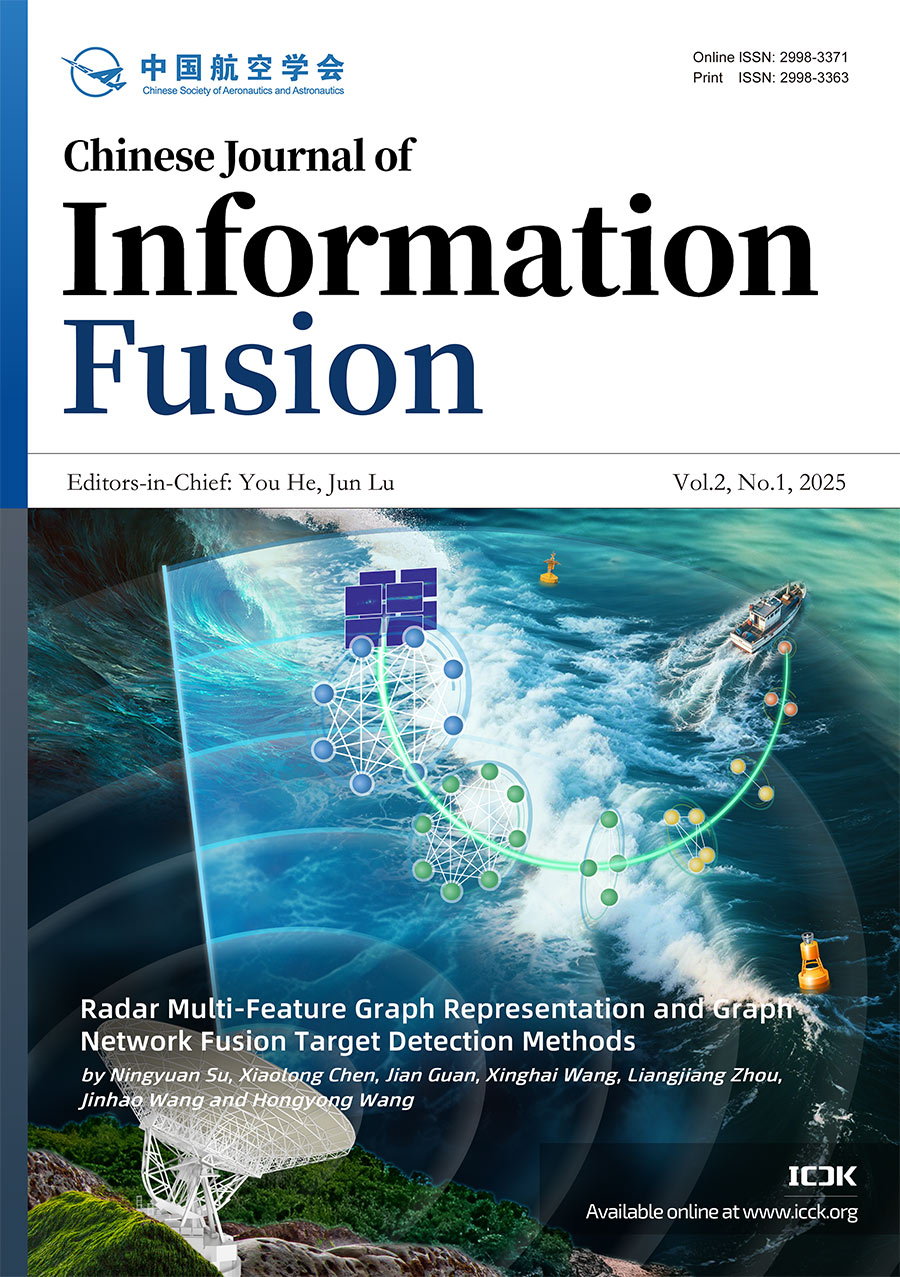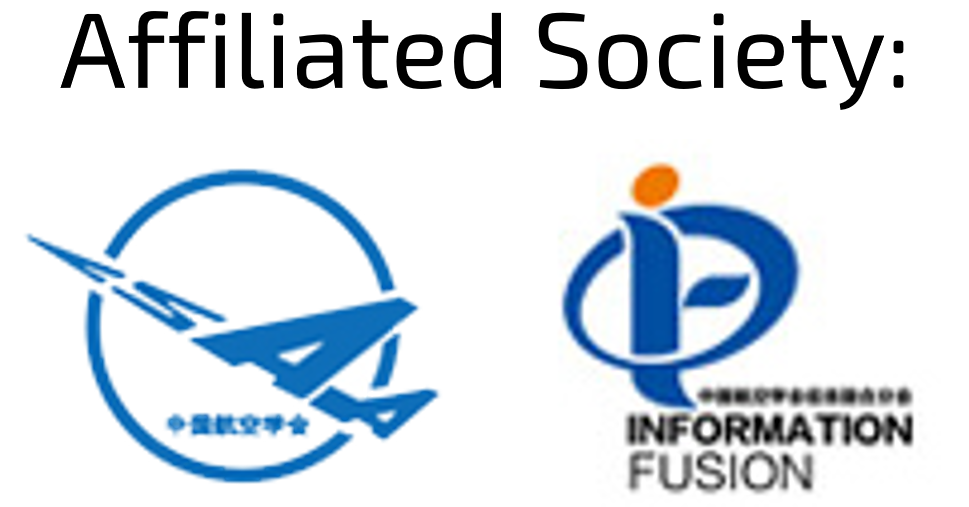About the Journal
![]() Chinese Journal of Information Fusion
Chinese Journal of Information Fusion
Online ISSN: 2998-3371
Print ISSN: 2998-3363
Abbreviation: Chin. J. Inf. Fusion
CODEN: CJIF
Publishing model: Open Access
DOI Prefix: 10.62762/CJIF
Official website: https://www.icck.org/cjif
Aims & Scope
Aims
Chinese Journal of Information Fusion (CJIF) is a peer-reviewed academic journal dedicated to advancing the development of information fusion theory, methods, and applications across various fields. The journal aims to provide researchers, engineers, and practitioners with a high-quality platform to publish original research contributions. By promoting interdisciplinary collaboration and driving cutting-edge technological progress, CJIF is committed to addressing the complex challenges in the field of information fusion and fostering the advancement of information fusion science and engineering. There is no restriction on the maximum length of the papers or colors used. The method/approach must be presented in detail so that the results can be reproduced.
Scope
The scope of the Journal includes, but is not limited to:
• Theoretical Foundations of Information Fusion
• Data Association and Multi-Target Tracking
• Image, Data, Information, and Multi-modal Fusion
• Fusion in Knowledge Representation and Reasoning
• Distributed and Wireless Sensor Fusion Networks
• Multi-Sensor, Multi-Source Fusion System Methods
• Adaptive Fusion System Theory
• Multi-Sensor And Distributed Sensor System Design
• Uncertainty Fusion Learning
• Artificial Intelligence, Deep learning and Machine learning For Fusion Processing
• Spatio-Temporal Data Fusion and Analysis
• Applications of Information Fusion Across Diverse Domains
• Emerging Technologies in Information Fusion
Publication Frequency
Quarterly
Affiliated Society
Ownership
![]()
The journal is owned by Institute of Central Computation and Knowledge Inc.
Archiving
All journals published by ICCK are archived in Portico, which provides permanent digital archiving for scholarly journals.
Copyright and Licensing
Articles published in Chinese Journal of Information Fusion will be Open-Access articles distributed under the terms and conditions of the Creative Commons Attribution 4.0 International (CC BY). Under this license, author(s) retain ownership of the copyright for their article, but authors allow anyone to download, reuse, reprint, distribute, and/or copy articles published in CJIF, so long as the original author(s) and source are cited.
Peer Review
The journal adheres to rigorous peer review and undergoes single-blind peer review. For more details, please refer to Editorial Process and Peer Review Policy.
Editorial Process
All manuscripts submitted to CJIF should adhere to journal's Editorial Process.
Plagiarism
Plagiarism detection is performed at ICCK using the iThenticate- Crossref Similarity Checking tool. This web-based tool is employed in the editorial process to identify potential text plagiarism. It's important to note that while iThenticate can identify matching text, it cannot independently determine whether plagiarism has occurred. Manual examination of the matching text is still necessary, and judgment must be exercised to ascertain the presence or absence of plagiarism. The similarity report might be sent to the author for revision whenever needed.
Publication Ethics Statement
ICCK is responsible for implementing rigorous peer review and strict ethical policies and standards to ensure that high quality scientific work is added to the field of scholarly publishing. ICCK takes such publishing ethics issues very seriously, and our editors are trained to enforce COPE's Core Practices and Guidelines, with a zero-tolerance policy for plagiarism, data falsification, and other behaviours. To verify the originality of content submitted to our journals, we use iThenticate/Crossref Similarity Check to check submissions against previous publications.
Advertising
The journal does not accept any commercial product advertisements until policy changes otherwise.
Direct Marketing
Journal propagation has been done through the journal website and distribution of an introduction pamphlet. Invitations to submit a manuscript are usually targeted towards presenters at conferences, seminars, or workshops related to the journal's aims and scope.



